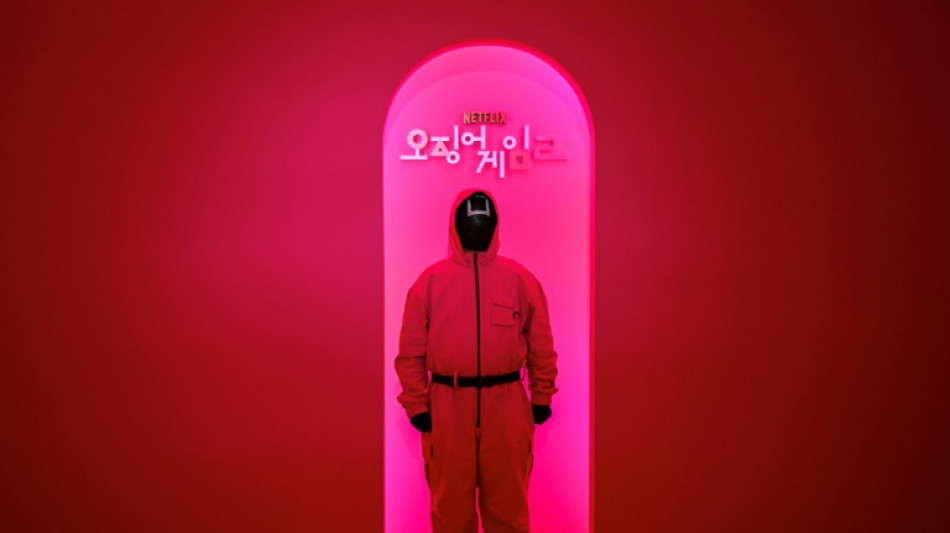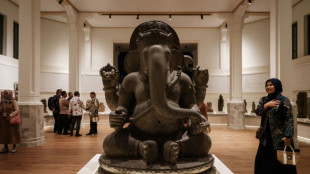

S. Korea Netflix mega hit 'Squid Game' premieres in Seoul after martial law
Squid Game is back. Netflix's most popular show ever, a dystopian South Korean vision of divided society, premieres its highly-anticipated second season on Monday as Seoul battles real-life policial chaos.
The show's return comes just days after South Korea's President Yoon Suk Yeol triggered a national crisis by briefly declaring martial law, until he was forced into a dramatic reversal by determined lawmakers, who battled heavily-armed soldiers in parliament to vote it down.
Yoon remains in office having survived an impeachment bid, with his party accused of staging a "second coup" to cling on to power, the opposition vowing to try to remove him again, and massive street protests expected this weekend.
"Squid Game", an ultra-violent tale exploring themes of division and inequality, is considered to be one of the most significant works in solidifying South Korea's status as a global cultural powerhouse, alongside the Oscar-winning film "Parasite" and K-pop megastars BTS.
Hwang Dong-hyuk, who wrote and directed both seasons of the show, said he was feeling "heavy-hearted" by what happened in his country ahead of the show's second season red carpet premiere on Monday, with global release set for December 26.
"It is extremely unfortunate and infuriating... that the entire nation cannot sleep due to such absurd circumstances," he said at a press conference in Seoul.
Due to the political chaos, South Koreans have had "to take to the streets, and must spend the end of the year filled with anxiety, fear, and depression," he said, adding he had stayed up all night to watch the martial law events unfold in live news broadcasts.
He urged "the person responsible" for the real-life drama, President Yoon, to accept responsibility "whether it is through impeachment or voluntary resignation."
- 'In the abyss' -
Squid Game Season 2 introduces several new young characters, including a "crypto expert" who has amassed significant debt and a transgender person who cannot afford gender confirmation surgery.
The main protagonist, Seong Gi-hun, played by megastar Lee Jung-jae, returns and joins the game again.
The second season takes place -- spoiler alert -- three years after Gi-hun won first time around, and he is determined to bring down the organisation responsible for the violent life-and-death games.
The original show, released in 2021, was a high point for the "Hallyu" or Korean wave -- the seemingly inexorable rise of South Korean content first noticed by many in the West after Psy's 2012 breakout hit song "Gangnam Style".
But embattled President Yoon has put all this at risk, 3,000 people in the film industry said in a statement this week.
Hallyu has "fallen into the abyss" thanks to Yoon's decision to declare martial law, the group, which includes luminaries like "Parasite" director Bong Joon-ho, said Sunday.
During the six hours of martial law, it was announced that "all media and publications shall be subject to the control of the Martial Law Command".
"No matter how much cinematic imagination is employed, what seems like a mere delusion has happened in reality," the statement by the South Koreans in the film industry said, calling for Yoon's exit and arrest.
"For Korean filmmakers, Yoon Suk Yeol is no longer the president. He is just a red-handed criminal for treason."
- Most watched show -
The show's first season was loosely inspired by South Korea's real-life tragedy of a crackdown on a 2009 Ssangyong Motor strike, which resulted in around 30 people taking their own lives or dying of stress-related causes.
The series highlighted some of the most marginalised individuals in the fiercely competitive South, like a North Korean defector and a laid-off, indebted worker.
The story unfolds as they compete in traditional children's games for a chance to win an unimaginable fortune in somewhat mysterious circumstances, with all losing players facing death.
The first season still holds the record as the streaming giant's most popular series of all time, boasting more than 330 million views as of Monday.
Hwang said Monday the reason why the first season of "Squid Game" was so successful was because it had "links" to the real-life "society we live in".
Even in the upcoming second season, viewers will be able to "find scenes that connect the absurd conflicts, divisions, and upheavals happening in our country and around the world," he said.
"Watching 'Squid Game' will not come across as something that is particularly detached from how we view the world."
(F.Bonnet--LPdF)




